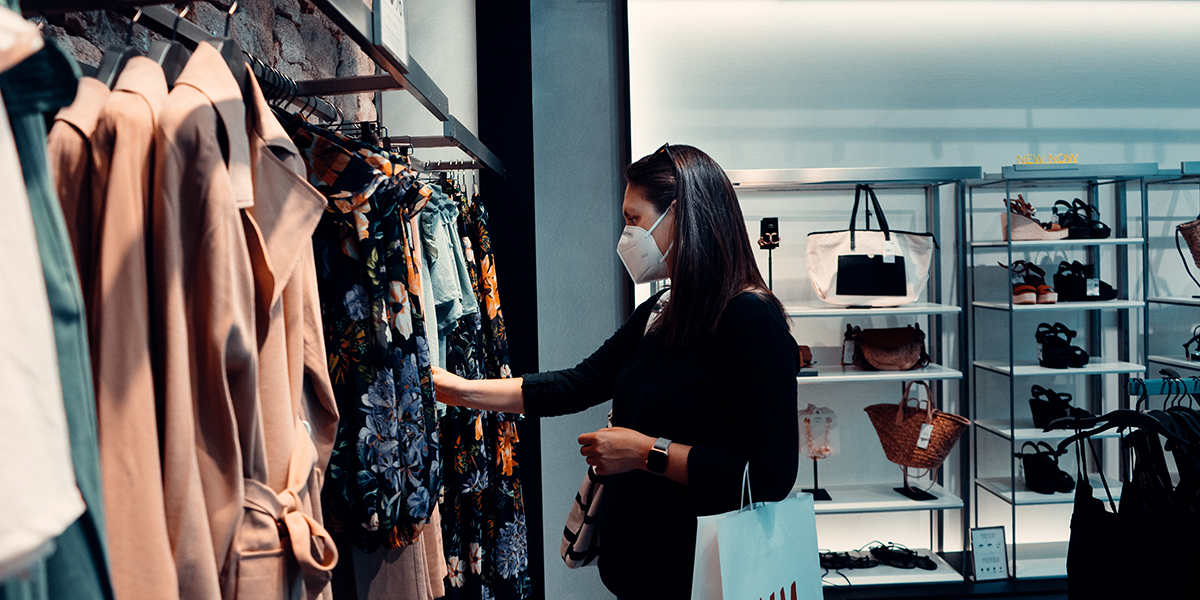Can brick-and-mortar retail be saved?
The Corona pandemic and lockdowns have hit stationary retail hard. There is an unusual emptiness on the streets of the city centers. In times of social distancing and contact restrictions, many customers prefer to use online services rather than buy clothes, perfume or books locally. Bad news is already pouring in for the winter, with experts warning of waves of insolvencies in stationary retail. Roman Becker, discoverer of the fan principle and long-time market research consultant, analyzes the current situation in an interview, talks about Karstadt, the textile industry and online stores – and takes a look at the future of stationary retail.
Question: Mr. Becker, you have been advising companies for over 20 years. How do you assess the situation?
Roman Becker: The situation is dramatic because the contact restrictions in the spring forced many customers to look elsewhere, namely online. And most of them – even the less online-savy customers – had a positive experience in doing so, because online retail is traditionally very well positioned in customer relationship management, achieving high fan rates. The current restrictions do not directly affect brick-and-mortar retailers, but many regular customers are wary. If you walk through the city centers, they seem deserted at the moment. Or customers have already migrated to online retail.
Question: Why do people still go to brick-and-mortar retail stores today, when everything is available online?
Roman Becker: Our studies are very clear on this: the feel and the atmosphere play a major role. Shopping is an experience for many, but especially the remaining supporters of brick-and-mortar retail value the contact with the employees. They want to be helped and looked after and are prepared to accept both the journey and higher prices for this.
Question: In this context, you claim that Corona is not solely responsible for the precarious situation of the retail trade, but that it is also massively self-inflicted. Why is that?
Roman Becker: Because instead of going on the offensive and highlighting its unique selling points, stationary retail has increasingly been caught in a downward spiral, caused by increasing cost pressure and a lack of sales. As a part of this spiral, retailers have cut back on precisely those points that make a visit worthwhile for customers in the first place. This would be, on the one hand, in the equipment, but on the other hand, especially in the “life blood factor” of employees. Similarly, salaries have been cut and staffing levels have been thinned out more and more. As a customer, you are often lost. If you do find a “free” customer advisor, he or she often seems massively demotivated. You then tend to ask yourself whether the effort and additional costs are really worth it compared to shopping on the Internet.
Question: What would be a good example of this? Karstadt?
Roman Becker: Yes, with the takeover by Signa Holding of the Austrian entrepreneur Rene Benko, the focus was no longer on reviving the strengths of a stationary department store, but on securing rental income and short-term returns. In this way, their fate was preordained.
Question: What can stationary retailers do now to inspire their customers, to turn them into fans?
Roman Becker: They have to analyze exactly: What are the customer needs? What does the customer expect when he comes to my store? Can I serve the needs and expectations excellently? However, it is important not to rely on your own intuition here, but to gain insights into what the customer really needs, through a well-founded customer survey. Another point to consider: Are employees committed to excellent customer service? Are they fit and motivated enough to meet customer needs to perfection? Does the team manage to create a lasting customer experience for the customer on site? Ideally in such a way, that the customer not only comes back frequently, but also recommends the store to others. Because fans are the best customers. They buy more, they buy more often, they are less price-sensitive and they recommend. That’s the best advertising for any company.


